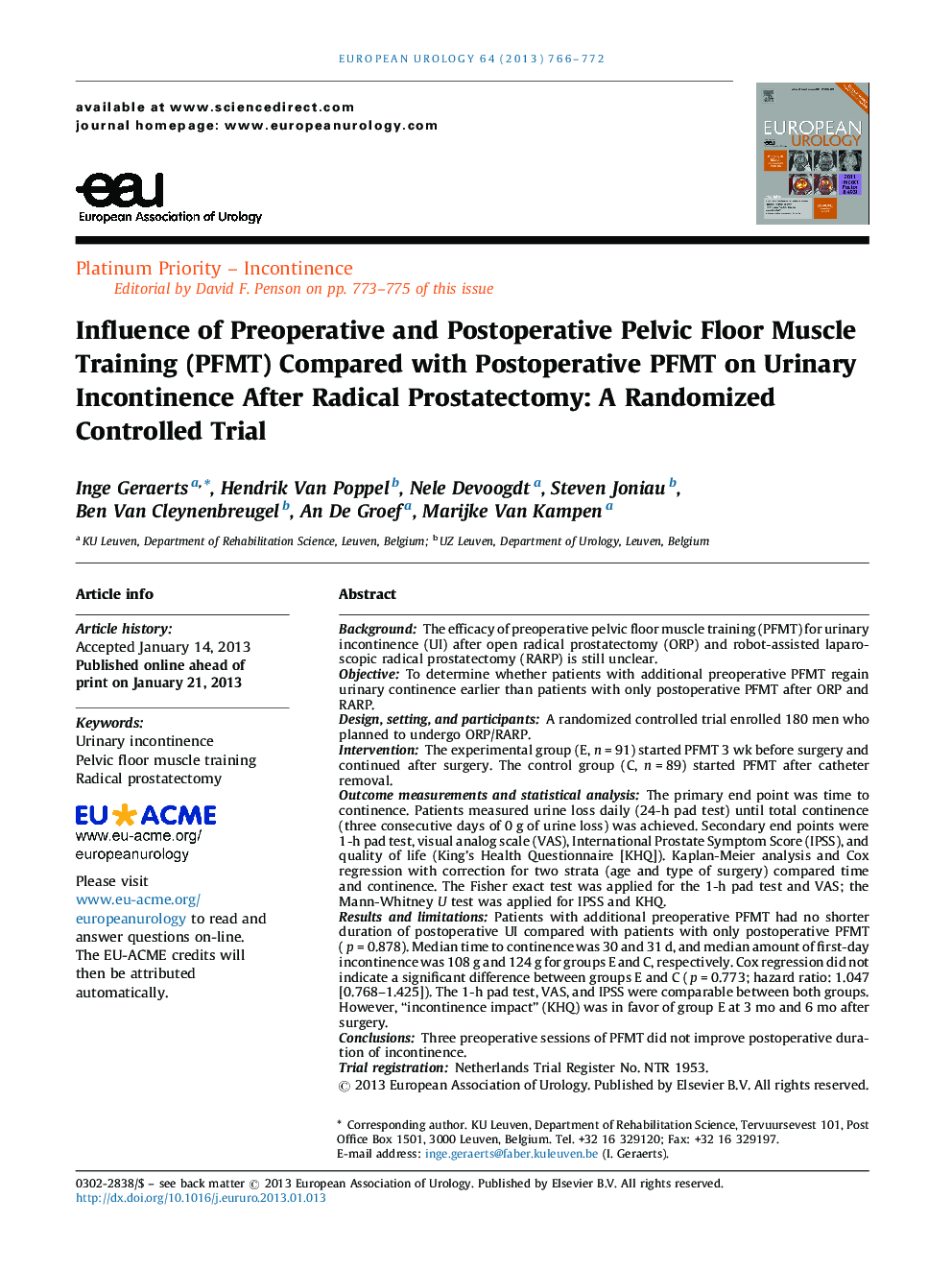| Article ID | Journal | Published Year | Pages | File Type |
|---|---|---|---|---|
| 6178146 | European Urology | 2013 | 7 Pages |
BackgroundThe efficacy of preoperative pelvic floor muscle training (PFMT) for urinary incontinence (UI) after open radical prostatectomy (ORP) and robot-assisted laparoscopic radical prostatectomy (RARP) is still unclear.ObjectiveTo determine whether patients with additional preoperative PFMT regain urinary continence earlier than patients with only postoperative PFMT after ORP and RARP.Design, setting, and participantsA randomized controlled trial enrolled 180 men who planned to undergo ORP/RARP.InterventionThe experimental group (E, n = 91) started PFMT 3 wk before surgery and continued after surgery. The control group (C, n = 89) started PFMT after catheter removal.Outcome measurements and statistical analysisThe primary end point was time to continence. Patients measured urine loss daily (24-h pad test) until total continence (three consecutive days of 0 g of urine loss) was achieved. Secondary end points were 1-h pad test, visual analog scale (VAS), International Prostate Symptom Score (IPSS), and quality of life (King's Health Questionnaire [KHQ]). Kaplan-Meier analysis and Cox regression with correction for two strata (age and type of surgery) compared time and continence. The Fisher exact test was applied for the 1-h pad test and VAS; the Mann-Whitney U test was applied for IPSS and KHQ.Results and limitationsPatients with additional preoperative PFMT had no shorter duration of postoperative UI compared with patients with only postoperative PFMT (p = 0.878). Median time to continence was 30 and 31 d, and median amount of first-day incontinence was 108 g and 124 g for groups E and C, respectively. Cox regression did not indicate a significant difference between groups E and C (p = 0.773; hazard ratio: 1.047 [0.768-1.425]). The 1-h pad test, VAS, and IPSS were comparable between both groups. However, “incontinence impact” (KHQ) was in favor of group E at 3 mo and 6 mo after surgery.ConclusionsThree preoperative sessions of PFMT did not improve postoperative duration of incontinence.Trial registrationNetherlands Trial Register No. NTR 1953.
